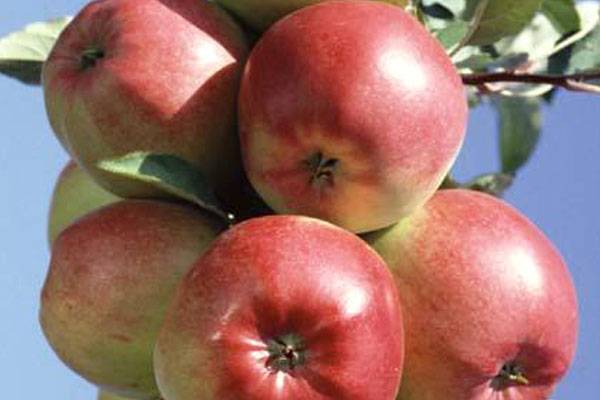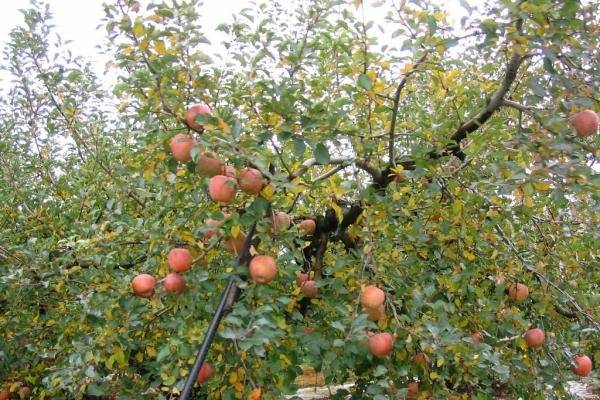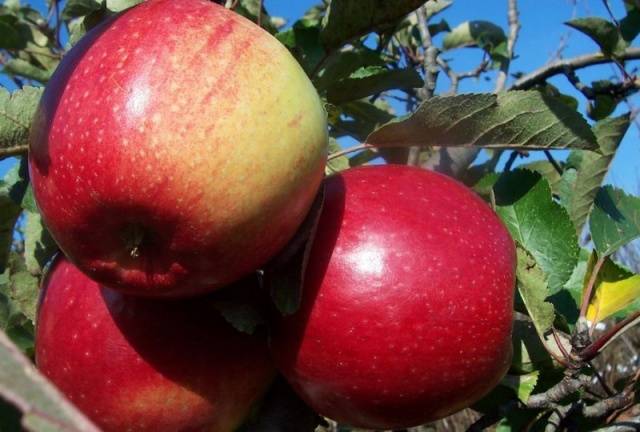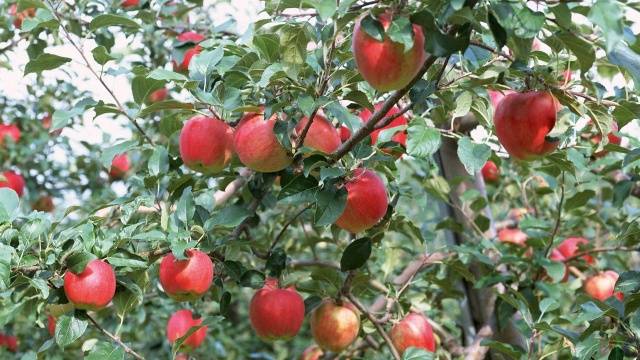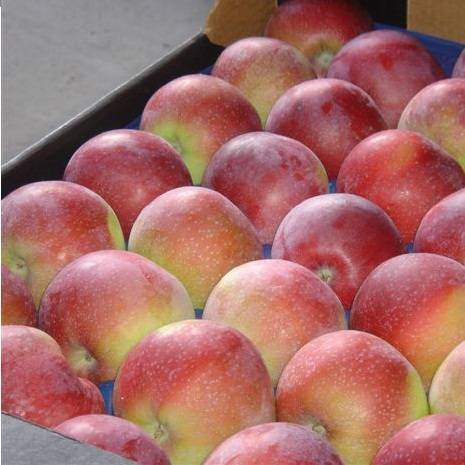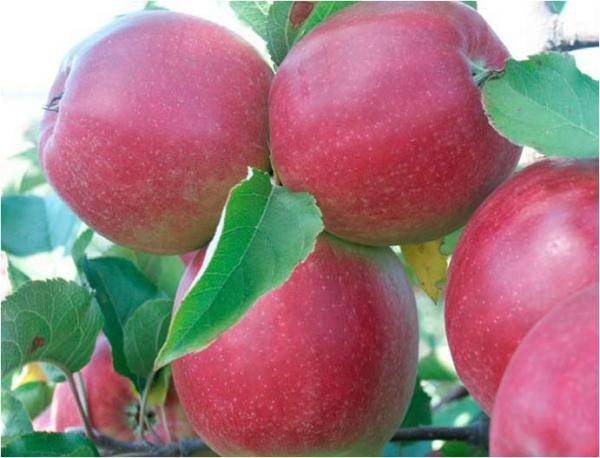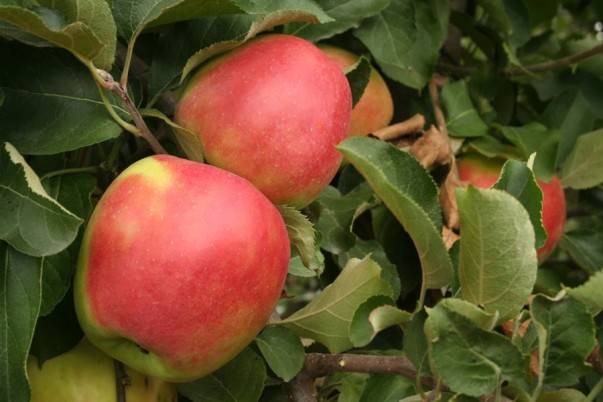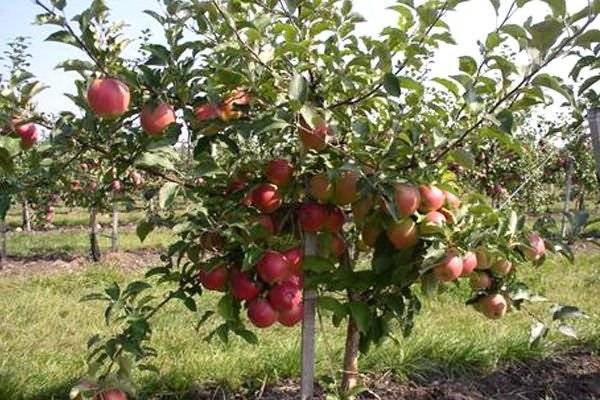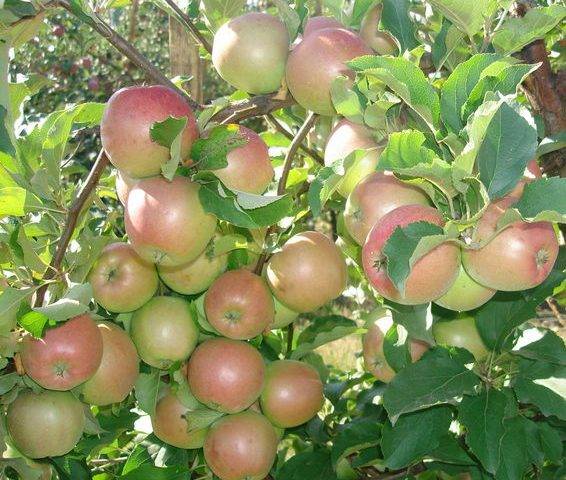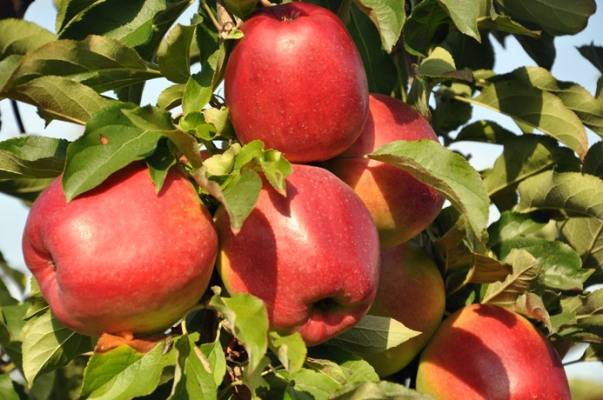Content
How often a gardener, in pursuit of certain rarities and wonders for his garden, forgets about the simplest, but at the same time dear to the heart and unpretentious fruits, like apples. It seems to be the most ordinary and grow in every garden, but even among them you can find interesting varieties that conquer either by their appearance, or by their unpretentiousness, or by their exquisite taste and ability to long-term storage, and sometimes all of the above qualities together.
This is exactly how the variety is the apple tree Ligol. It belongs to the winter varieties of apples, and recently it is they that have begun to enjoy particular popularity. Since in summer and autumn fruits are usually abundant and apples are of little value. But apples, which fully reveal their bouquet of taste and aroma only by January and can be safely stored until April, of course, cannot but arouse interest.
Ligol variety and its description
Quite a long time ago, back in 1972 in the Polish city of Skierniewice, scientists of the Institute of Horticulture and Floriculture bred the Ligol apple variety.
The trees of the Ligol variety are characterized by an average growth for apple trees, and at the age of ten the apple tree can reach only 3.5 meters in height. The most intensive growth can be observed in apple trees of this variety in the first years of life. With the onset of fruiting, the growth rate slows down somewhat.
The crown density, with its shape reminiscent of a wide pyramid, is average, and the branches themselves grow at a rather large angle to the trunk - 65-85 degrees. As a result of this fact, a sufficient amount of air penetrates into the gaps between the branches, which means that the risk of damage to various fungal diseases in the apple tree decreases. The skeleton of the tree itself is quite powerful.
The leaves of Ligol apple trees are slightly elongated, have a pointed tip, the color is dark green, the underside is pubescent. There are twisted leaves with jagged edges. The growth of the main green mass occurs in the period from May to July. And the leaves of the Ligol apple tree finally drop by the end of October - November.
The flowering period is short, within 10 days, large white flowers bloom quite late, at the end of May.
Since this apple variety was originally created for commercial use, it is self-fertile. That is, for good fruiting, he needs other varieties of apple trees growing nearby. Moreover, there are apple varieties that are best suited for Ligol as pollinators. These include, first of all:
- Champion;
- Mac;
- Idared;
- Golden Delicious;
- Gloucester;
- Spartan;
- Red Delicious;
- Fuji;
- Gold Rush;
- Cortland.
I must say that all these varieties are interesting for their qualities, and you are unlikely to regret planting one of them on your site.
A description of the Ligol apple variety would be incomplete without mentioning the fact that young trees begin to bear fruit very early. Already in the third year, you can harvest up to 4-5 kg of apples from one tree. And every year the number of apples harvested will increase rapidly until it reaches 50 kg or more from one tree.
Such a significant yield is explained by the high ability of Ligol apple trees to shoot.But thanks to this same property, the tree is prone to periodic fruiting, if not helped by annual formative pruning. Indeed, due to the large number of branches with fruits, the load becomes unbearable and the tree itself is unable to cope with it. It is recommended to cut Ligol apple trees in the form of a spindle. And pruning can be done not only in autumn or spring, but also in summer. In apple trees of this variety, sometimes there is a transfer of the crop from one side of the crown to the other.
The undoubted advantages of Ligol apple trees are its frost resistance and drought resistance. In general, Ligol apple trees quite easily adapt to local climatic conditions, therefore they are easily cultivated both in the middle lane and in the southern regions. An important characteristic of the variety is its resistance to the main diseases of the apple orchard: scab and powdery mildew. But at the same time, it is not very resistant to fire blight. However, it is quite possible to cope with this problem if preventive measures are taken in time.
Fruit characteristics
Ligol apples have a fairly regular and beautiful round-conical shape. The size of apples is large, on average, each fruit weighs about 250 grams, but it is not uncommon when one apple can weigh 350-400 grams.
The apple tree fruit is mostly uniform in size, which is very convenient for commercial use.
Their appearance attracts attention - mainly the color is yellowish-green or deep yellow with a bright red blush, which occupies most of the apple's circumference. However, descriptions of apples from different trees can be quite different - much depends on the amount of sunlight falling on the apples, and on temperature conditions, and even on the pollinator variety. Numerous light subcutaneous points are clearly visible, as in the photo below.
The peel of Ligol apples is dense, glossy, so they tolerate transportation well, including over long distances. The appearance of apples is estimated at 4.8 points.
The flesh of the fruit is fine-grained, juicy, firm and crunchy. The taste is sweet, although there is also some sourness. The tasters rate the taste of apples at 4.6 points. Ligol apple variety is characterized by a strong pleasant aroma.
Ligol apples are ready to be picked from the tree and stored at the end of September. Of course, they can continue to be kept on the tree, since they acquire commercial qualities only by November - January next year. But it is undesirable to do this, since overripe apples are poorly stored, and during storage they quickly lose moisture. In order for the apples to be well preserved until spring, the following storage conditions must be observed:
- In the dark, in boxes, layered with newspapers, paper or sawdust;
- In a cool place, not higher than + 12 ° С, and with a humidity of about 60%.
If these conditions are not met, apples can be affected by skin tanning and bitter pitting.
Planting and care rules
Despite the general unpretentiousness in growing, the Ligol apple tree will still show the best results if it is taken away with nutrient-rich soils and light areas. However, it withstands slight shading perfectly.
But the most important thing for any seedling is the correct planting.
The soils at the planting site of the apple tree should be neither sandy nor clayey. In both cases, in addition to humus, additional application of either sand or clay is necessary, depending on what exactly is missing.
Usually a standard hole is pulled out of such a size that the straightened roots of the seedling fit freely into it. The inoculation site or the root collar should never be deepened. It is better that they rise a few centimeters above the ground. In this position, the straightened roots of the seedling are placed in a hole and carefully covered with a mixture of earth and humus, gradually tamping slightly. Simultaneously with planting parallel to the trunk, a strong stake is driven into the ground, to which in the first year a seedling can be tied up until it is completely stronger. After planting, the apple tree is watered abundantly.
The rest of the rules differ little from the usual care for other apple trees.
Gardeners reviews
In Russia, the Ligol apple variety has not yet become popular, perhaps due to an innate wary attitude towards everything commercial, so there are not so many reviews from those who actually grew them in their garden. But many managed to taste it.
Conclusion
Apple tree Ligol is an interesting and promising variety for home and commercial cultivation. You can try to grow it in the Central region and more southerly regions. For more northern territories, the variety may be weak.
